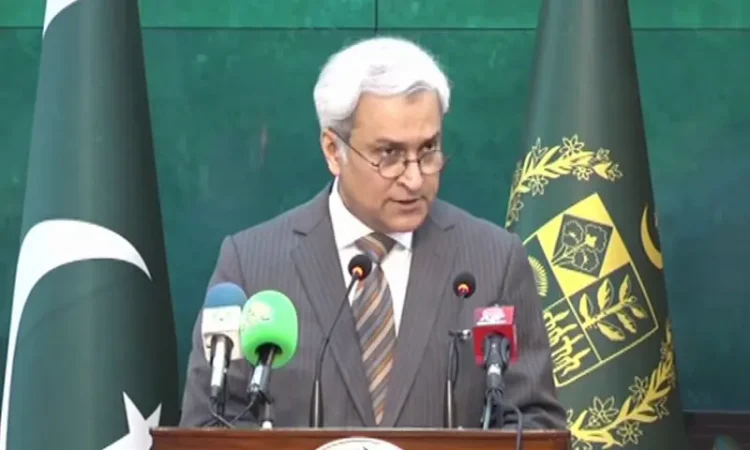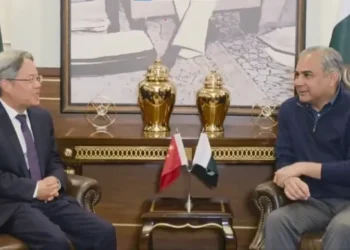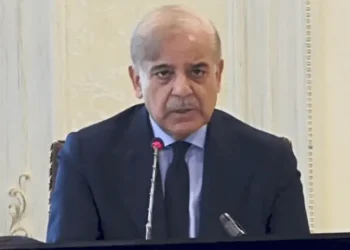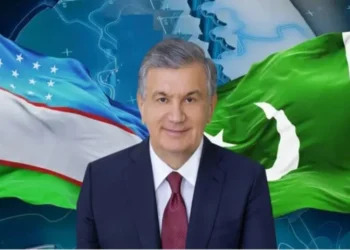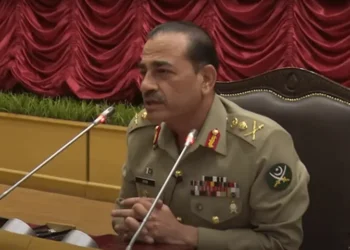ISLAMABAD; The Foreign Office spokesperson, Tahir Hussain Andrabi, on Friday confirmed that the Afghan Taliban government in Kabul had acknowledged the presence of Tehreek-i-Taliban Pakistan (TTP) and other terrorist organisations on its territory.
The announcement came as Pakistan and Afghanistan agreed to continue a ceasefire following weeks of tension and cross-border clashes earlier this month. The understanding was reached after five days of tough negotiations in Istanbul, mediated by Turkiye and Qatar. The talks, which began on October 25, were the second round following the Doha discussions held on October 18 and 19.
Addressing a weekly press briefing, Andrabi said, “The Afghan Taliban government has acknowledged the presence of TTP and other terrorist organisations. Afghan authorities have given several justifications for not taking action against them.” He added that such admissions “reinforce Pakistan’s security concerns.”
He explained that Islamabad has maintained “cautious optimism” in its engagement with Kabul over the past four years. “In diplomacy, optimism is a professional necessity,” he noted.
When asked about the reopening of the Torkham border crossing, Andrabi said he had no information and referred the matter to the interior ministry, adding that contact was being maintained with Pakistani traders and citizens in Afghanistan.
The spokesperson said Pakistan hopes for a positive outcome from the next round of talks scheduled for November 6. “Pakistan will continue engaging in the mediation process in the spirit of peace and regional stability,” he said.
He noted that Pakistan’s participation in the Istanbul talks was “in good faith and with a clear position that Afghan soil must not be used for terrorism against Pakistan.”
Andrabi emphasised that Islamabad did not want hostilities to escalate but expected the Afghan Taliban to fulfill their commitments by taking verifiable actions against groups such as TTP (Fitna-al-Khawarij) and Baloch separatist outfits (Fitna-al-Hindustan).
He said Pakistan had repeatedly shared credible intelligence about the presence of these groups’ leadership on Afghan soil. However, despite past assurances, attacks from across the border had increased.
“Pakistan decisively responded to Afghan provocations aimed at destabilising border areas and facilitating terrorism,” he warned, adding that any future provocations would be met with a firm response.
Andrabi reiterated that Pakistan desired a peaceful, stable, and prosperous Afghanistan. “Despite security concerns, Pakistan extended numerous concessions to support Afghanistan, including cooperation in trade and regional connectivity projects such as the China-Pakistan Economic Corridor.”
He highlighted that Pakistan had elevated its diplomatic representation in Kabul to ambassador level and signed agreements on regional rail connectivity, including the Uzbekistan-Afghanistan-Pakistan Railway Project.
Meanwhile, Defence Minister Khawaja Asif confirmed that an interim ceasefire agreement had been reached through mediation by Turkiye and Qatar. However, he cautioned that “until terrorism from Afghan soil stops, the ceasefire cannot be effective.”
The statement came amid heightened tensions following cross-border attacks earlier this month, which triggered retaliatory strikes and accusations between Islamabad and Kabul.




















































